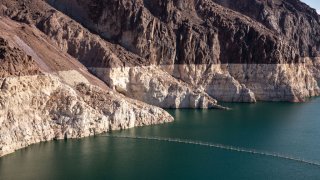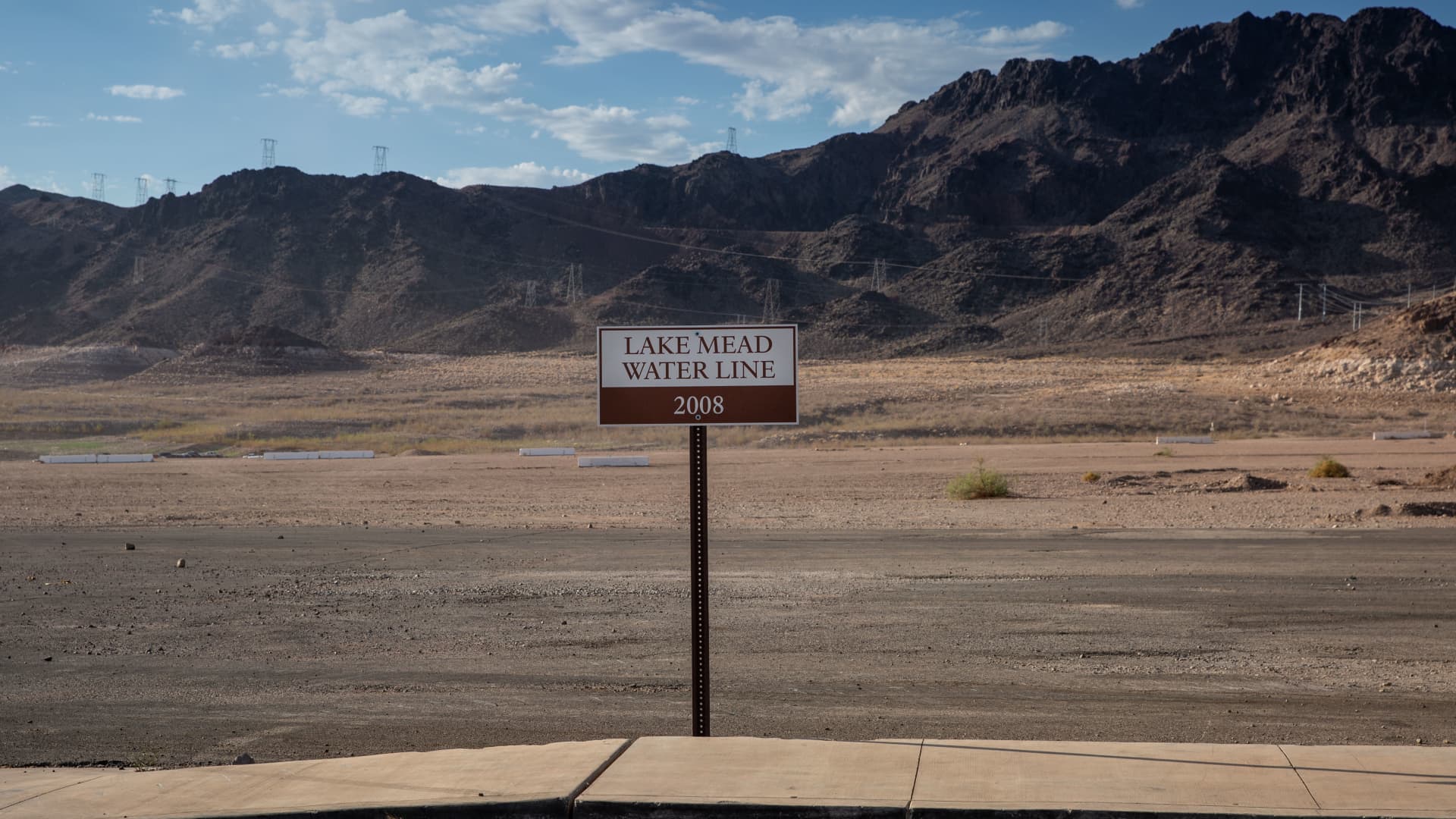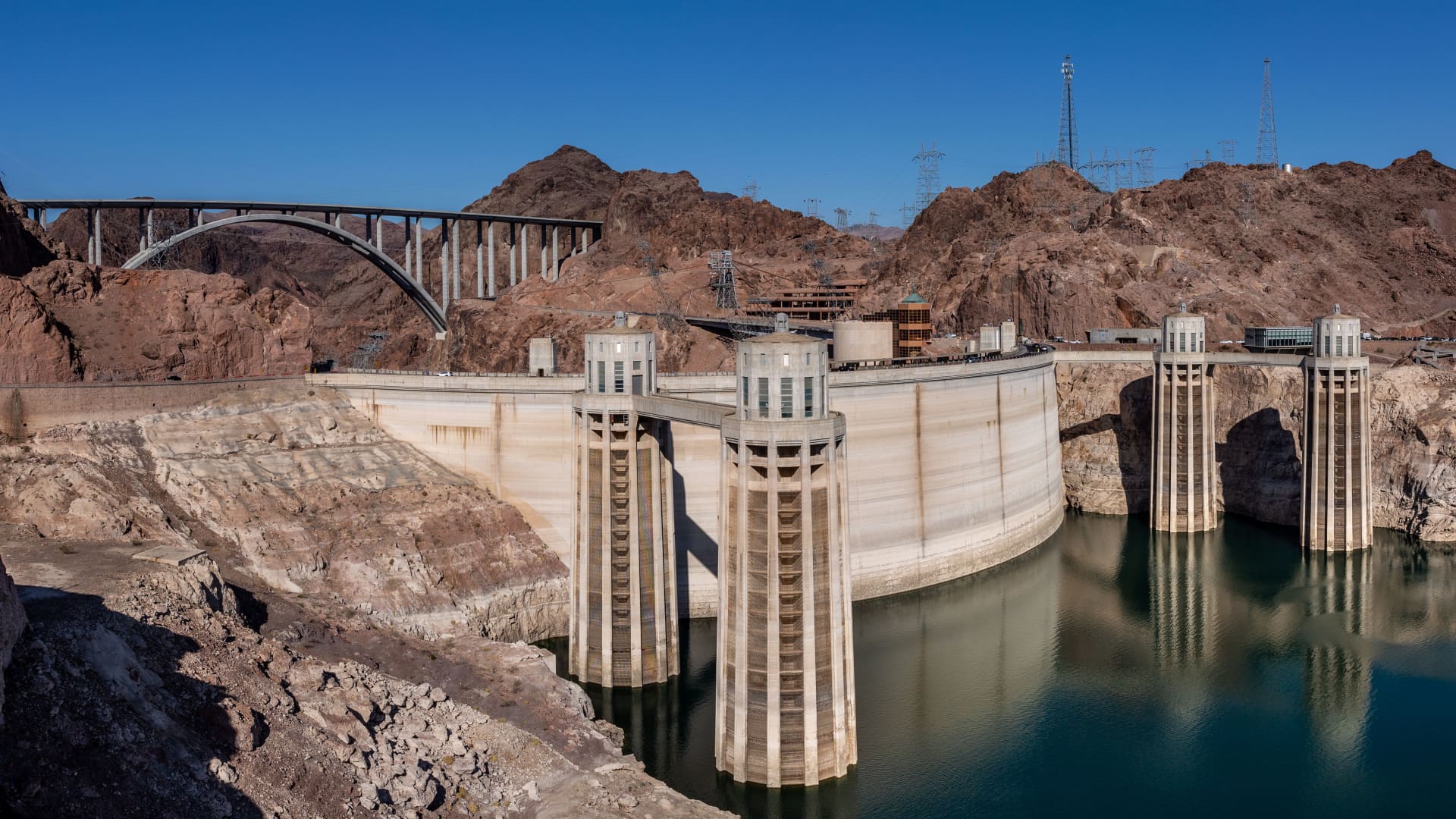
- For the second year in a row, the federal government said Arizona, Nevada and Mexico will have to reduce their water consumption.
- A 23-year drought has been drying up the Colorado River and the effects of climate change, both in terms of extreme heat and low precipitation, are making that more severe.
- Arizona, Nevada and Mexico have been asked to make cuts starting in January. Arizona water officials balked at being asked to shoulder what they see as an unfair portion of the burden.
For the second year in a row, the federal government said Arizona, Nevada and Mexico will have to reduce their water consumption.
"The worsening drought crisis impacting the Colorado River Basin is driven by the effects of climate change, including extreme heat and low precipitation," said deputy secretary of the Department of the Interior Tommy Beaudreau, in a statement announcing the required cuts.
Get Connecticut local news, weather forecasts and entertainment stories to your inbox. Sign up for NBC Connecticut newsletters.
The Colorado River is 1,450 miles long and runs through the Western states and into Mexico.
The Hoover Dam, which was completed in 1935, formed the artificial reservoir, Lake Mead. The Glen Canyon Dam, completed in 1963, created the artificial reservoir called Lake Powell.
The Colorado River basin has been in a drought for 23 years. The water released from the two dams, Glen Canyon and the Hoover Dam, will be reduced, the Department of the Interior said. And the second year in a row of water shortages is a sign of "the severity of the drought and critically low reservoir conditions," the Department of the Interior said.
Money Report
"Every sector in every state has a responsibility to ensure that water is used with maximum efficiency. In order to avoid a catastrophic collapse of the Colorado River System and a future of uncertainty and conflict, water use in the Basin must be reduced," said Tanya Trujillo, assistant secretary for water and science at the Department of Interior, in a statement.
Starting in January, Arizona will have to reduce its water usage by 592,000 acre-feet, which is 21% of the water the state uses. Nevada will have to reduce its use by 25,000 acre-feet, which is 8% of the state's water use. And Mexico will have to reduce its annual appointment by 7%.

Arizona state representatives expressed frustration at the cuts and the lack of a long-term collective plan for the states that depend on the Colorado River for water.
"It is unacceptable for Arizona to continue to carry a disproportionate burden of reductions for the benefit of others who have not contributed," Tom Buschatzke, director of the Arizona Department of Water Resources, and Ted Cooke, the general manager of the Central Arizona Project, said in a joint statement.
"The Basin States have not yet produced a viable plan nor has the United States proposed a plan that achieves the protection volumes identified by the Commissioner. Achieving volumes at this magnitude will take significant contributions by all water users in the Colorado River Basin," Buschatzke and Cooke said.







